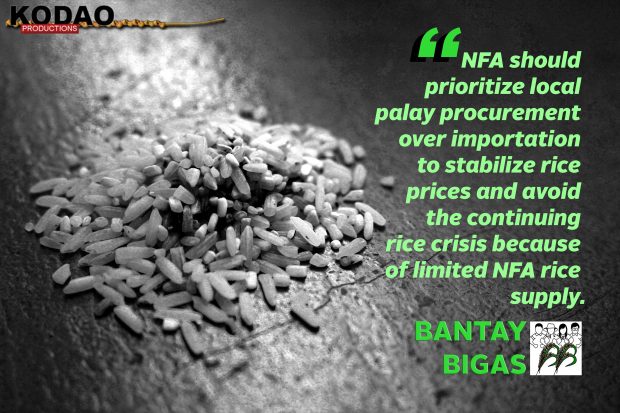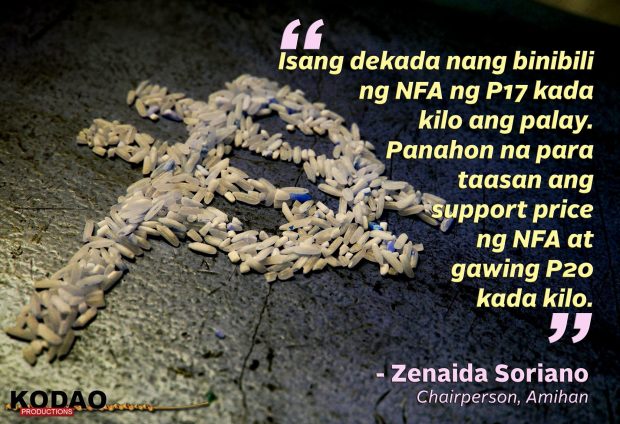Farmers lose Php85 billion during first year: Peasant livelihoods destroyed, food insecurity worsened by rice liberalization
by IBON Media
Research group IBON said that rice liberalization has undermined the livelihoods of millions of farmers and most likely even pushed many into bankruptcy. It will only worsen the country’s food insecurity, the group said, as already seen with record high rice imports.
Enacted one year ago, the Rice Liberalization Law or Republic Act (RA) 11203 removed quantitative restrictions on rice importation and replaced this with 35% tariff on rice imports from the region and higher from elsewhere. The law was justified as the solution to high rice prices in 2018. Tariffs from the rice imports were also supposed to fund programs to make Filipino rice farmers competitive, eventually increasing their incomes.
IBON said however that the influx of record rice imports has devastated farmers’ livelihoods. The Philippines imported a record 3.2 million metric tons (MMT) of rice in 2019, surpassing the previous record of 2.4 MMT of rice imports in 2008 by 40 percent. That was the first time that the Philippines gained the dubious distinction of being the world’s biggest rice importer.
Huge rice imports caused palay farmgate prices to plummet, said IBON. The price of palay fell by 22.4% from Php20.14 per kilogram (/kg) in end-December 2018 to Php15.63/kg in the same period in 2019, said the group. Some major rice producing provinces such as Nueva Ecija, Isabela, and Laguna even reported palay prices as low as Php7/kg and Php10/kg.
IBON estimates that rice farmers in aggregate suffered a total income loss of Php84.8 billion in 2019 due to the catastrophic drop in palay farmgate prices. This is equivalent to an average income loss of some Php35,328 per rice farmer.
Farmers groups have reported that as many as 200,000 farmers were forced to stop planting rice due to income losses. Also, at least 3,000 of the country’s some 10,000 rice mills reportedly closed down due to the increase in rice imports.
IBON said that the widespread disruption of rice producers is intentional and the result of free market forces being unleashed on the country’s backward agriculture. The group assailed the economic managers for using high rice prices to justify pushing marginal and so-called unproductive farmers and millers into bankruptcy.
IBON said that the country’s food insecurity is getting worse under the Duterte administration especially because of the low government priority given to domestic agriculture including the rice industry. The country’s rice importation grew from the equivalent of around 5% of total rice production in 2016 at the start of the Duterte administration to 26% of total rice production in 2019. Unprecedented rice imports are exposing the country’s inability to produce sufficient quantities of its staple food, said the group.
IBON said that the rice liberalization policy is another indication of government’s long-time neglect and disregard of local rice production and agriculture in general. The group said that the government should not pit rice farmers and rice consumers against each other. Farmers and consumers have a common interest in the protection and strengthening of the domestic rice industry towards rice self-sufficiency. #



